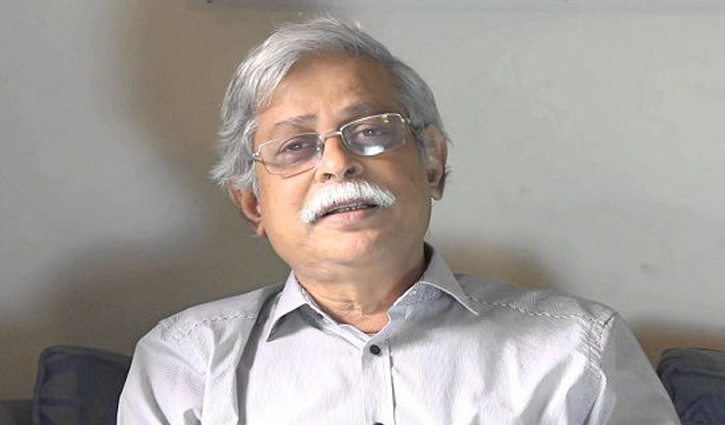 Yesterday, there was an attempt on the life of Professor Muhammad Zafar Iqbal who is a leading intellectual in Bangladesh, . The assassin was standing behind Prof. Iqbal when he was overseeing a robotics meet at Sylhet's Shah Jalal Engineering and Technology University. The attacker managed to stab him in the head with a dagger. Prof. Iqbal was transported by a military helicopter to a Dhaka hospital. Luckily, the wounds were not life threatening and currently, he is in stable condition.
Yesterday, there was an attempt on the life of Professor Muhammad Zafar Iqbal who is a leading intellectual in Bangladesh, . The assassin was standing behind Prof. Iqbal when he was overseeing a robotics meet at Sylhet's Shah Jalal Engineering and Technology University. The attacker managed to stab him in the head with a dagger. Prof. Iqbal was transported by a military helicopter to a Dhaka hospital. Luckily, the wounds were not life threatening and currently, he is in stable condition.
The lone attacker was seized and detained by the police. It is possible that there were other attackers who were there, but managed to flee. It is to be noted that, due to previous threatening phone calls and mails that Prof. Iqbal received, the authorities assigned security guards for him a few years ago. During this incident the guards were nearby, but could not prevent the attack.
Prof. Iqbal was one of the only few voices who was vocal against the killings of the bloggers during 2015 and 2016 and thus earned the ire of the Islamists. He is not known to be an atheist, but due to his candid writings on contemporary topics militant Islamists have long included him in their hit lists.
The attack on Prof. Iqbal has to be seen in the context of onslaught against freethinking and logical discourse in current Bangladesh. The current government has engaged the militant cells of the Islamist organizations with force, but has done everything to stop free thinkers to write anything that is critical of the fundamentalist religious path that the country has embarked upon. It turned a blind eye to the killings of Rajib Haider, Avijit Roy, Washikur Rahman, Ananta Bijoy, Niloy Neel and other bloggers, and took their murders seriously only when there was a massacre at the Wholey Artisan restaurant in July of 2016. But later, on behest of the Hefazat-i-Islam, an extremely conservative religious entity, it removed texts of progressive writers from the school curriculum. It has allocated special budget to build more mosques and madrasas throughout the country. Awami League, the ruling party, is trying to establish itself as a vanguard of Islamic principles; this is a way to wrest the Islamic mantle away from the opposition Bangladesh Nationalist Party and Jamat-i-Islami. This is also the way to assure that Awami League is returned to power in the next election.
Unfortunately, such steps have dire consequences. A large portion of the populace now sympathize with the fundamentalist ideas of Islam. This is evident even after the attack on Prof. Iqbal yesterday. A substantial fraction of the comments in social media laments the fact that Prof. Iqbal has survived the attack.
The Government is very active in implementing a draconian computer and internet act, known as ICT 57, that goes after anybody commenting anything critical of any religion (read Islam), but takes absolutely no steps when it comes to safeguarding the lives of writers and activists who are under threat from the Islamists for their outspokenness. It is more likely that the authorities would throw the freethinkers in jail rather than protect their constitutional rights. One case in point is the arrest and subsequent jailing of publisher Shamsuzzoha Manik in 2016 for publishing a book on the life of Prophet Muhammad.
The steps taken by the Government only embolden the militants. At minimum, it creates an atmosphere of fear where truth and logic become victims. Currently, the philosophical milieu of Bangladesh is going through a dark time. Writers and activists have to constantly readjust their bearings to figure out how not to earn the ire of the religious militants or the authorities.
The attack on Prof. Zafar Iqbal has to be condemned in no uncertain terms. At the same time, we urge the Bangladesh Government to declare its commitment to free speech and secularism that the country was initially based upon. Rather than building more madrasas, it needs to reorganize the school curriculum where secularism and science-based teachings are encouraged. Otherwise, Bangladesh would surely entire a dark age that is plaguing many countries today.